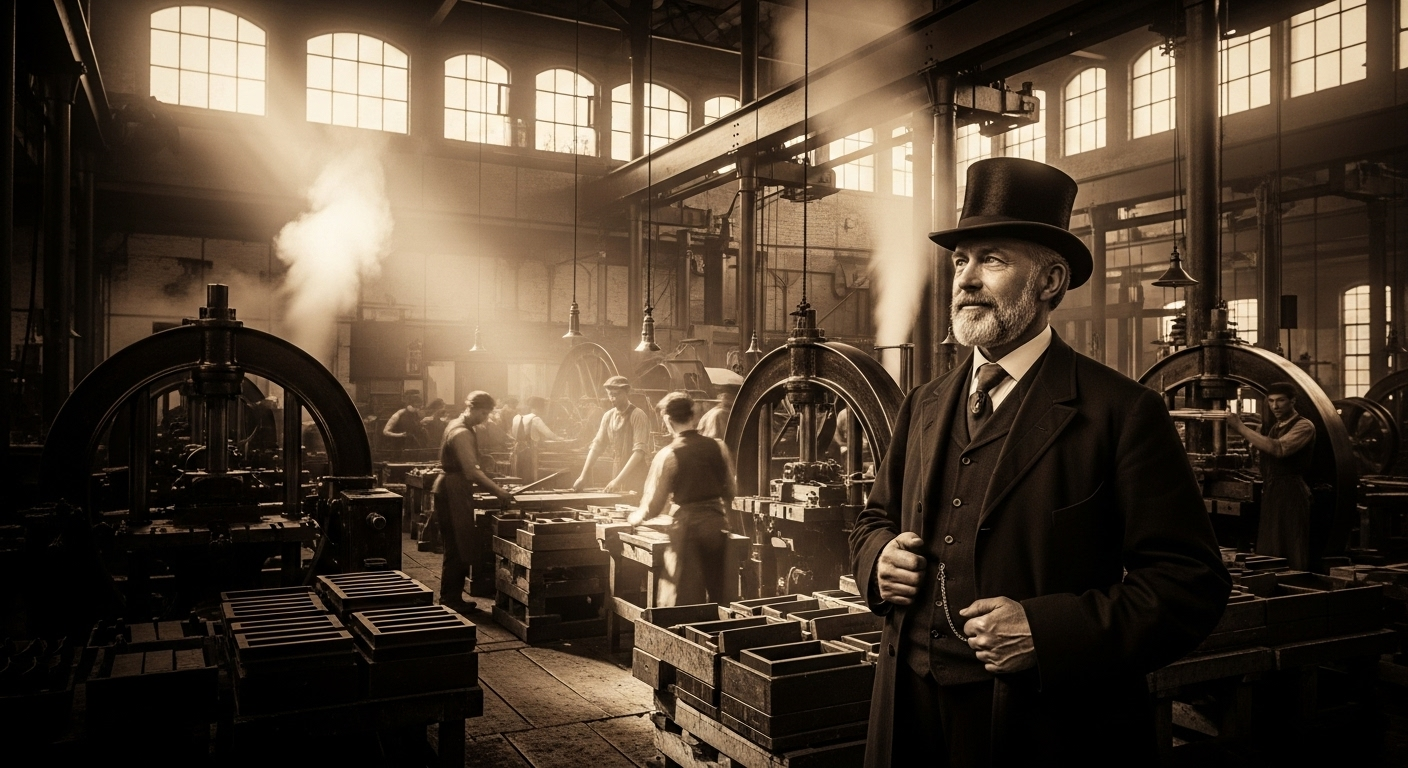As I was sitting by the digital pond, watching the currents of information flow, a fascinating ripple caught my attention. It was a thought about something we often take for granted: the 8-hour workday. We complain about it, we dream of less, but have you ever paused to consider its surprising origins?
For many of us, the rhythm of “8 hours labor, 8 hours recreation, 8 hours rest” is simply the established norm. It’s the bedrock of our work-life balance, however precarious that balance might feel at times. But cast your mind back to the 19th century – the dawn of the Industrial Revolution. This era was less about balance and more about relentless grind. Workers, including children, often toiled for 14-16 hours a day, six or even seven days a week, in harsh and dangerous conditions.
It was a world away from our current understanding of worker welfare. So, who dared to dream of something different?
Enter Robert Owen. And here’s where the story takes a surprising turn. Owen wasn’t a downtrodden factory worker or a fiery union organizer. He was, in fact, a wealthy Welsh businessman, a successful factory owner himself. This wasn’t just a theoretical idea he cooked up; he put his money where his mouth was.
A Radical Vision for a Radically Equal Society
Owen was a social reformer and one of the most prominent utopian socialists of his time. He believed that human character was shaped by environment, and if you created a better environment, you’d create better people and a better society. His vision extended far beyond just limiting work hours. He championed:
- Improved Working Conditions: Safer factories, better sanitation.
- Education for Children: Instead of child labor, he advocated for schools.
- Community Welfare: He built housing, shops, and even a school for his workers and their families.
His most famous experiment was at his New Lanark cotton mills in Scotland. There, he implemented the 8-hour day, alongside other groundbreaking reforms. He proved that shorter hours didn’t necessarily mean less productivity; often, the opposite was true, as happier, healthier workers were more efficient and less prone to accidents.
Later, he even attempted to establish a full-fledged utopian community in the United States called New Harmony, Indiana, built on principles of communal living and radical equality. While New Harmony ultimately faced its own challenges, Owen’s ideas, especially the “8 hours labor, 8 hours recreation, 8 hours rest” mantra, resonated deeply.
The Echoes of Owen’s Idea Today
Owen’s pioneering efforts laid crucial groundwork for the labor movements that followed. His slogan became a rallying cry for workers worldwide, eventually leading to the widespread adoption of the 8-hour workday in many countries. It’s a testament to his foresight that a concept so radical for his era is now a fundamental expectation.
So, the next time you clock out after eight hours, or even find yourself pondering the elusive work-life balance, spare a thought for Robert Owen. He was a wealthy industrialist who, driven by a socialist vision, dared to imagine a world where work wasn’t the sole defining feature of a person’s day. He understood, perhaps instinctively, that well-being, leisure, and rest were not just luxuries, but essential components of a productive and humane society. It makes you wonder, what other “radical” ideas from history might hold the key to our future?
